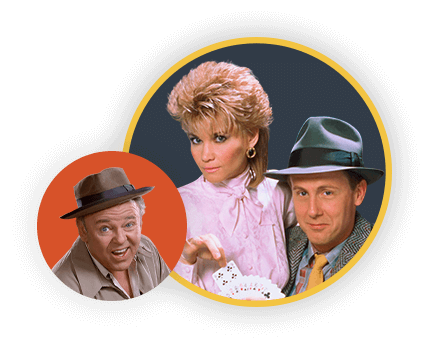Catching up with Walter Polovchak, the 12-year-old who defected from the Soviet Union in 1980

Top image: Bill Carruthers/Decades Network
He lives on a quiet street in Des Plaines, Illinois, where he resides in a modest four-bedroom house with his wife and two children.
These days, 48-year-old Walter Polovchak’s biggest concerns are what his 22-year-old son will do now that he’s graduated from college, and whether or not he’ll be able to make his 13-year-old son’s soccer games on the weekends.
But 36 years ago, Polovchak was the subject of headline news stories throughout the world, as he was dubbed the "littlest defector."
Polovchak, then 12 years old, caused an international furor when he and his 17-year-old sister, Nataly, refused to return to the Soviet Union with their Ukrainian parents, who had resided in Chicago for about six months.
Instead, the two ran away from their parents. His sister was approaching her 18th birthday, so she was old enough to apply for U.S. citizenship. But Walter would not reach 18 until 1985.
On July 19, 1980, attorneys for Polovchak filed for his political asylum, so he could stay in the United States.
"I didn’t have any intentions of causing any international incidents and quite frankly, I was scared to death," Polovchak told the Decades during a recent interview at his Des Plaines home. "I didn’t know what was gonna happen to me. I had Secret Service protecting me because we were afraid that the KGB would come and snatch me."
Polovchak was granted asylum, and he became a symbol of the waning Cold War between the United States and the Soviet Union.
Soviet officials claimed Walter had been kidnapped, while the Reagan administration offered full support to Walter, especially by successfully appealing any attempts to bring his custody case back to a state court.
Polovchak remembered his initial decision to run away from his parents, after his father informed him of his decision to return to the Soviet Ukraine.
"My natural reaction was, no, I don't want to go back, I want to stay here," Polovchak recalled. "I know what's there already. I've lived there and I know what to expect if I go back. We had multiple conversations until my father got tired of listening to me and basically came up to me and said, 'We're going back and you're going with me and if you don't like it, we're going to call the police and pay them $100. They'll throw you on the plane and you'll have nothing to say about it.' Well, that's the way things got done in the Soviet Ukraine at that time."
Polovchak ended up becoming a U.S. citizen shortly after his 18th birthday in 1985.
It took a while, but he was able to reconnect with his parents, including his father, Mikhail, who died in 2008; and his mother, Anna, who died on June 24th of this year.
Walter Polovchak said he was planning on visiting his mother in the Ukraine on August 10, before he got the news of her death. Anna Polovchak had been diagnosed with Stage 4 cancer, he said.
“I talked to her the day before she died,” Polovchak said. “She lived a hard life, but at least the doctors said she didn’t have much pain when she passed away.”
These days, Polovchak said that few people approach him about the drama that surrounded him when he was a teenager.
"Typically someone my age or older will say, ‘Where do I know that name from?'" he said.
But Polovchak has no regrets about what happened 36 years ago.
"I feel grateful and blessed for the decision I made."
Watch Walter Polovchak as he recounts his decision to file for political asylum in the U.S. on Decade's Through the Decades on Tuesday, July 19, at 7AM, 1PM and 7PM EDT.





